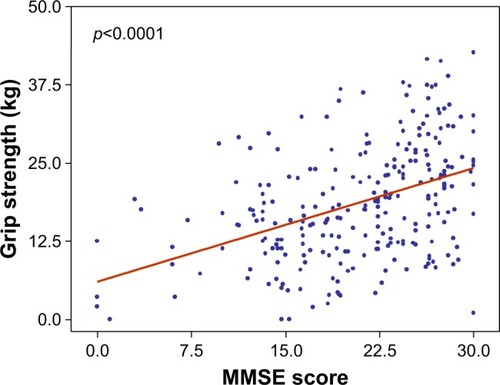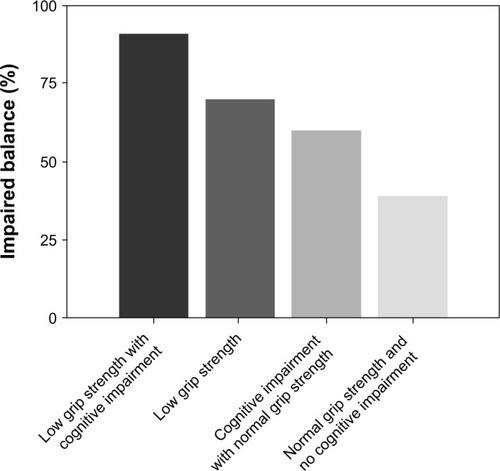Figures & data
Table 1 Characteristics of the study population (N=263)
Table 2A Factors associated with balance deficit
Table 2B Association between muscle strength, cognitive performance and their interaction term on balance deficit
Table 3 Age- and sex-adjusted muscle strength and MMSE with the balance deficit among 4 categories
Figure 1 Association between grip strength and MMSE (p<0.0001).
Abbreviation: MMSE, mini-mental state examination.

Figure 2 Relationship between cognitive impairment, grip strength and balance deficit: almost all patients with both impairments had a balance deficit (91%), 70% of those with low grip strength and 61% of those with cognitive impairment had a balance deficit, while only 38% of patients without muscle and cognitive impairment showed a balance deficit (Chi-square p<0.0001).

Table 4 Relationship between balance deficit and characteristics derived from the CGA among four categories
